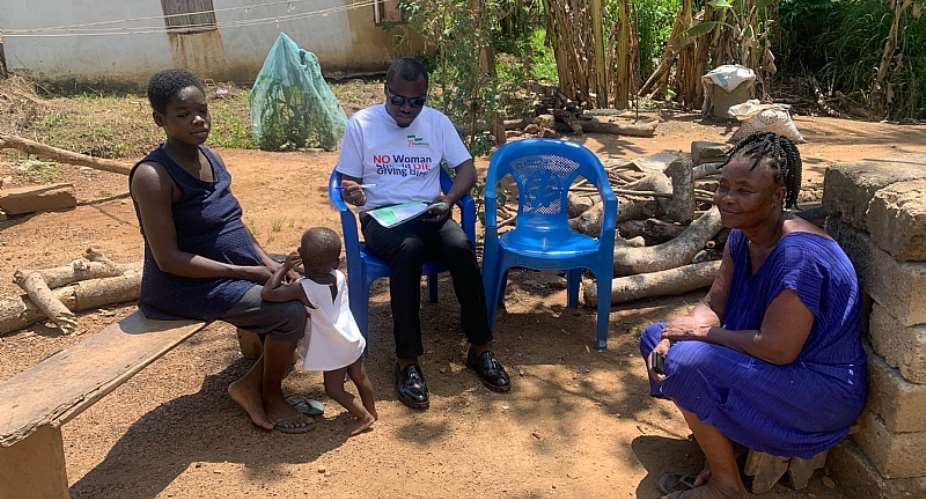Youth Rise International (YoRI), a youth-driven grassroot and advocacy development organization, has called on African governments to initiate and invest massively in a long-term Youth in Agriculture Programme (YAP) to make agriculture attractive to young people.
They must harness the combined power of the huge youthful population and abundant uncultivated arable lands by rolling out national level YAP.
Such programmes must focus on re-directing the time and energies of the unemployed youth into commercial agriculture using modern irrigation systems.
This will create jobs, improve food security, reduce extreme poverty and vulnerability that leads to cross-border trafficking, YoRI said in a release as it joined the global community to commemorate the World Earth Day on Saturday, April 22.
The Day is annually celebration to honour the achievements of the environmental movement and raises awareness of the need to protect the Earth.
Among others, YoRI is a survivor-led that focuses on mobilizing the young people and local communities to fight extreme poverty, inequality, and marginalization through promotion of social protection, education, decent work, climate justice, maternal and child health and advocacy/policy influencing.
YoRI said it had observed in recent times with deep worry some youth uprisings and demonstrations across major cities of Africa largely whirled on high food prices, high cost of living and rising youth unemployment.
It said the youth concerns corroborates World Bank estimates that 40 percent of people who joined rebel movements were motivated by a lack of economic opportunity, “something we totally condemn in no uncertain terms.”
“This phenomenon has become urgent because, while the world and the continent of Africa continues to grapple with the negative impacts of the COVID-19 pandemic and conflict, climate and environmental changes are worsening the current volatile economic situation.
“There is deepening extreme poverty for the marginalized and socially excluded whose major source of livelihoods depends on rain-fed agriculture systems,” the statement said.
YoRI said the current food system feeds the great majority of the world population and supports the livelihoods of over 1 billion people, but it’s pressured from non-climate stressors, particularly population and income growth and climate change.
“Sadly, climate change negatively affects all four pillars of food security; availability, access, utilization, and stability.”
YoRI reaffirmed a United Nations Food and Agriculture Organization (FAO) observation which estimated that there is a need to produce about 50 per cent more food by 2050 to feed the increasing world population.
FAO noted almost 60 per cent of Africa’s population is under the age of 25, making Africa the continent with the youngest population in the world, but it must adopt efficient irrigation systems and environmental practices that protect and preserve the climate among others.
Again, Africa is blessed with many natural advantages and rising market opportunities that could be leveraged for agriculture transformation.
“Undeniably, our planet needs us now more than ever. There is no gainsaying that the upcoming years will be crucial to averting the worst effects of the climate emergency, and every one of us has a part to play,” the statement said.





 List of 24 ministerial nominees approved by Parliament
List of 24 ministerial nominees approved by Parliament
 You were my inspiration, made me who I am today – Lilian Kumah
You were my inspiration, made me who I am today – Lilian Kumah
 Rainstorm destroys Hohoe E.P. Senior High School building
Rainstorm destroys Hohoe E.P. Senior High School building
 John Kumah strongly supported me to become NPP flagbearer – Bawumia reveals
John Kumah strongly supported me to become NPP flagbearer – Bawumia reveals
 Late John Kumah urged me to run for NPP flagbearer, strongly supported me — Bawu...
Late John Kumah urged me to run for NPP flagbearer, strongly supported me — Bawu...
 Akufo-Addo appoints Joseph Kpemka as Deputy MD of BOST
Akufo-Addo appoints Joseph Kpemka as Deputy MD of BOST
 Ablakwa petitions CHRAJ to investigate sale of SSNIT's hotels to Rock City Hotel
Ablakwa petitions CHRAJ to investigate sale of SSNIT's hotels to Rock City Hotel
 MoF to provide new bailout for defunct Gold Coast Fund investors – Bawumia revea...
MoF to provide new bailout for defunct Gold Coast Fund investors – Bawumia revea...
 OMCs implement price adjustments despite International petroleum price declines
OMCs implement price adjustments despite International petroleum price declines
 Petition to remove Kissi Agyebeng will disrupt operations of OSP – Martin Kpebu
Petition to remove Kissi Agyebeng will disrupt operations of OSP – Martin Kpebu
